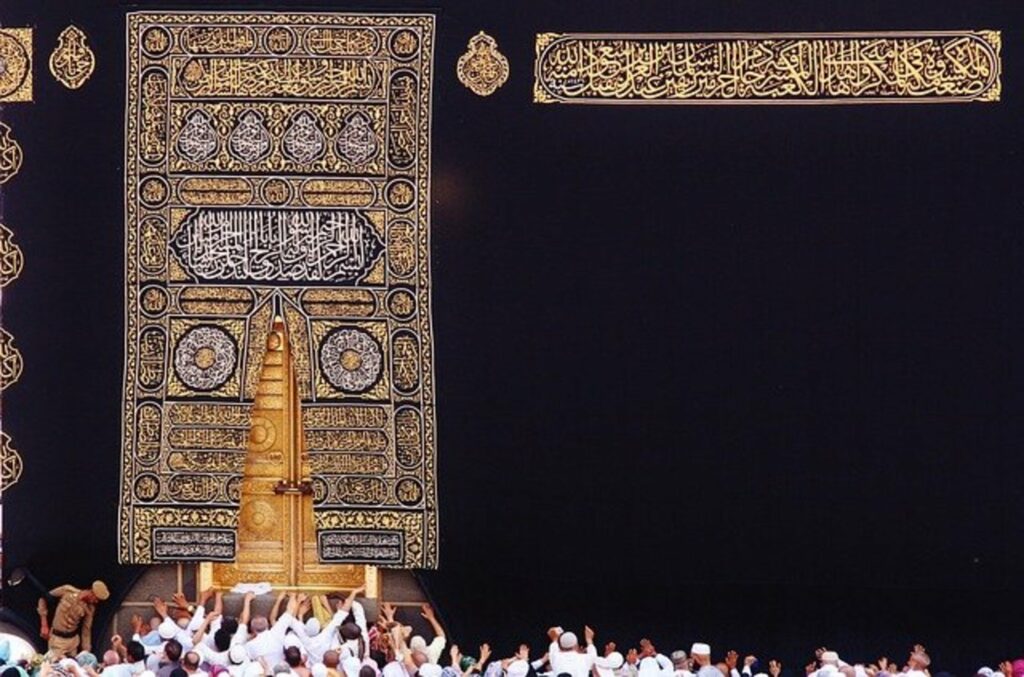1. Allah (ʿazza wa jall) honoured these days by taking an oath by them.
Allah (subḥānahū wa ta‘ālā) says: “By the Daybreak, and by 10 Nights”. (89:1-2)
According to the majority of the scholars, these 10 nights refer to the 10 days of Dhul Ḥijjah. When Allah swears an oath by something, it is an indication of its importance and benefit.
2. These are the best days of the year.
The Messenger of Allah ﷺ said, “There are no better days in the sight of Allah than the 10 days of Dhul Ḥijjah” (Ibn Ḥibbān).
The Messenger of Allah ﷺ said: “There are no days on which righteous deeds are more beloved to Allah than these 10 days (the first 10 of Dhul Ḥijjah).” The (Ṣaḥābah radiy Allāhu ʿanhum) asked: “Not even jihād in the path of Allah?” The Messenger of Allah ﷺ replied: “Not even jihād in the path of Allah, unless a man goes out himself for jihād taking his wealth with him and does not return with anything from it.” (Tirmidhī)
The scholars have said that the days of the first 10 days of Dhul Ḥijjah are superior to the last 10 days of Ramaḍān. However, there is a night in Ramaḍān which is superior to all other nights (i.e. Laylat al-Qadr).
3. They comprise of the Day of Arafah.
One of the main reasons for these days being extremely special is that they comprise of the Day of ʿArafah. The Day of ʿArafah is the greatest day of ḥajj: the day on which sins are forgiven, souls are released from the Hell-fire, and duʿās are readily accepted.
This day is also special because it was the day Allah (subḥānahū wa taʿālā) bestowed upon us our Ummah’s greatest gift: He perfected the religion of Islam and completed His favour upon us.
The Prophet ﷺ said, “There is no day wherein Allah sets free more slaves from Hell-fire than the day of ʿArafah. Indeed, He draws near, and He then boasts about them to the angels and says: ‘What do these (slaves of mine) want?’” (Muslim).
4. They comprise of the day of Nahr (sacrifice).
The Messenger of Allah ﷺ said: “The greatest day in the sight of Allah is the day of Naḥr (10th of Dhul Ḥijjah) and then the day of Qarr (11th of Dhul Ḥijjah).” (Abū Dāwūd)
The Day of Naḥr is the best day due to the various rites of ḥajj simultaneously occurring in it, such as the pelting of the jamārāt, sacrificing the animal, shaving the head, ṭawāf, and saʿy. Similarly, non-pilgrims gather for the Eid ṣalāh, congratulate one another and perform qurbānī.
5. The Prophet ﷺ would fast these days.
One of the wives of the Messenger of Allah ﷺ said, “The Messenger of Allah ﷺ used to fast on the first nine days of Dhul Ḥijjah; the day of ʿĀshūrā’ and three days of each month…” (Nasā’ī).
Ibn Ḥajar (raḥimahullāh) said the reason that these 10 days are so special is because all of the major acts of worship occur in them, which doesn’t happen in other days: ṣalāh, fasting, charity and ḥajj. Although it is possible to combine the first three deeds on an ordinary day, the great worship of ḥajj is restricted to these blessed days.
Amass huge gains by seizing the opportunity of doing good in these great days (of Dhul Ḥijjah), for they are irreplaceable and priceless.
Be quick in doing good and hurry before death strikes; before the transgressor will regret what he did, and beg to return to do good, but will be refused; before death comes between the hopeful and his hopes; and before man is held hostage in his grave by the actions he set forth. – Ibn Rajab (raḥimahullāh)
Whoever missed out on standing in ʿArafah, then let him stand for Allah and fulfil His rights which he is aware of.
Whoever is unable to spend the night in Muzdalifah, then let him be strongly determined to obey Allah, as Allah has drawn him near.
Whoever could not stay in the vicinity of Masjid al-Khayf (in Mina), then let him stand for Allah with hope and fear.
Whoever is unable to slaughter his sacrificial offering in Mina, then let him slaughter his desires and reach his objective.
And whoever was unable to reach the House (Kaʿbah) due to its distance, then let him advance towards the Lord of the House – for He is closer to the one who supplicates to Him and has hope in Him than his jugular vein. (Ibn Rajab (raḥimahullāh))








